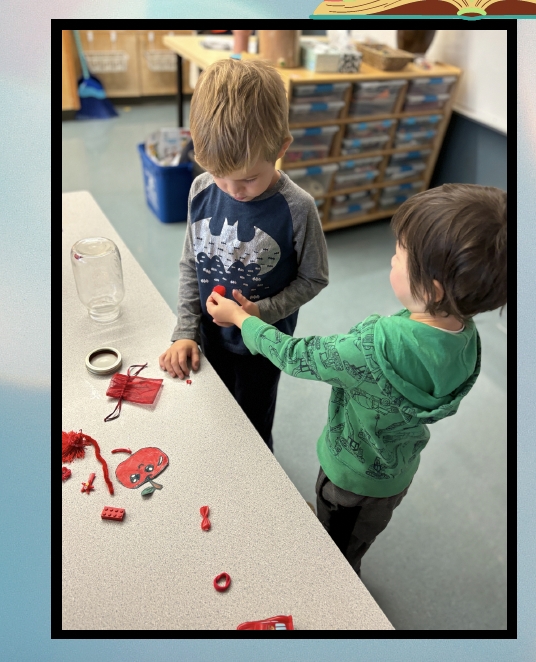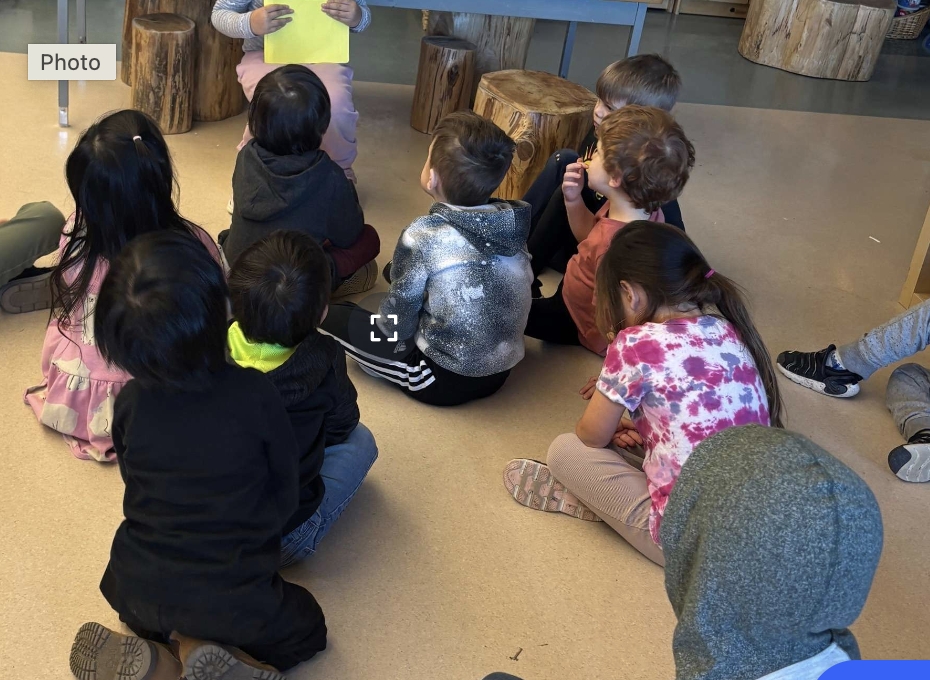Sunnyside Elementary 24-25
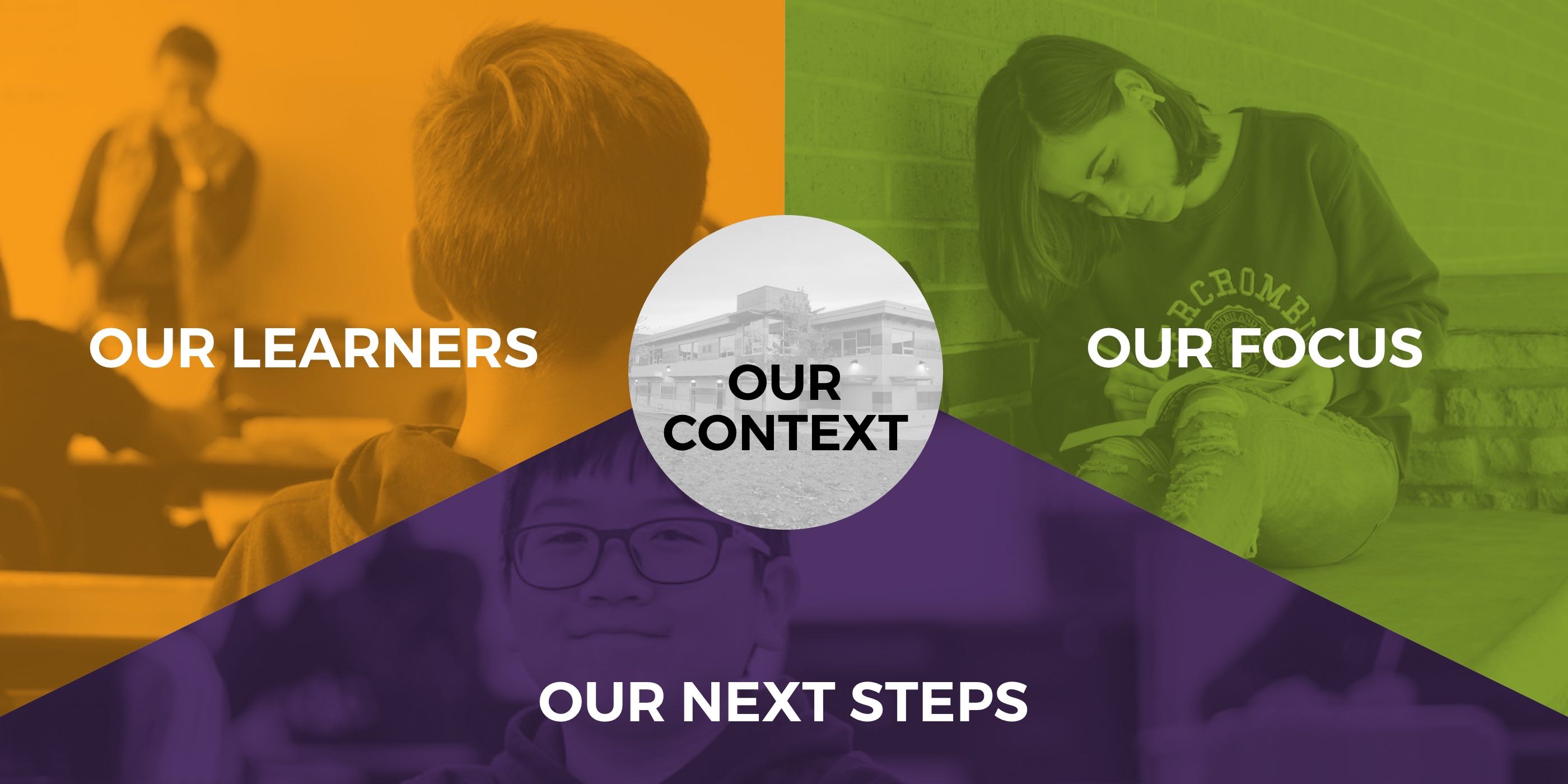

OUR CONTEXT
Everyone who works and learns at our school, is committed to improving student learning by promoting the well-being of the self, the family, the community, and the land. We believe social and emotional learning provides a foundation for safe and positive learning, and ultimately, enhances aptitude for academic success for each individual learner.
Our students have a range of talents, perspectives, cultural backgrounds, ways of knowing, and diverse skills and abilities. Every individual student is invited to our supportive and welcoming school environment where perspectives and identities are valued to ensure they have a feeling of belonging to better contribute to their learning and to that of their peers. The students take pride in telling stories to a variety of audiences.
Outdoor learning on our campus and in neighbouring parks, provides opportunities for learners to engage in meaningful experiences to develop their sense of place, both with their families and alongside their classmates and teachers. We value First Peoples’ Principles of Learning and we love oral story telling!
The staff at Sunnyside recognize the need to create and maintain a supportive school and classroom environment where students feel Safe and Happy. It is a school where everyone is Included and Nurtured and where we teach students to develop a sense of Empathy. At Sunnyside we SHINE!
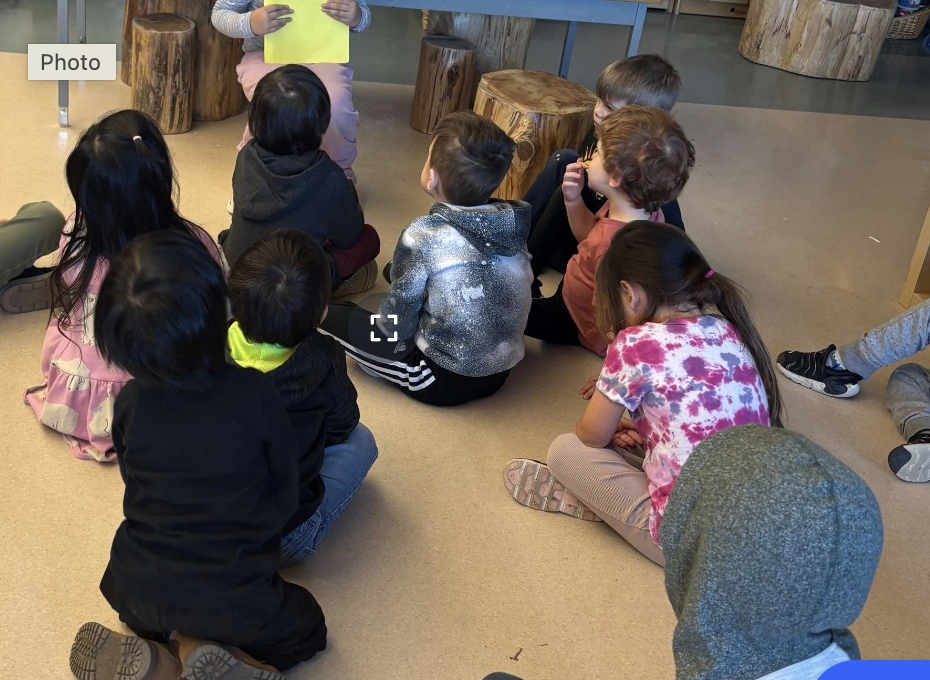
OUR LEARNERS
Our Cohort
Our cohort of early childhood learners consists of vibrant and curious kindergarten students who are developing foundational language and communication skills. They are actively engaged in targeted practice focused on oral storytelling, using personal experiences, imagination, and visual prompts to share their ideas. These young learners are beginning to organize their thoughts into beginning, middle, and end structures, and are experimenting with descriptive language and dialogue. With support, they are learning to stay on topic, use complete sentences, and expand their stories with meaningful detail. Our focus remains on nurturing their confidence as storytellers while gradually increasing the complexity and coherence of their narratives.
We share the authentic evidence of learning from classroom-based assessment. We are dedicated to creating and maintaining the right relational conditions for our children to feel secure and connected. Our SEL lead teacher, along with primary teachers, the principal and vice principal, attended the SurreySchools Rest, Play, Grow with Deborah MacNamara.
Understanding young children means recognizing their deep need for connection, the crucial role of play, and the importance of discipline that supports development rather than suppresses it. When adults create the right relational conditions, children can grow through this unique stage of life with resilience and security.
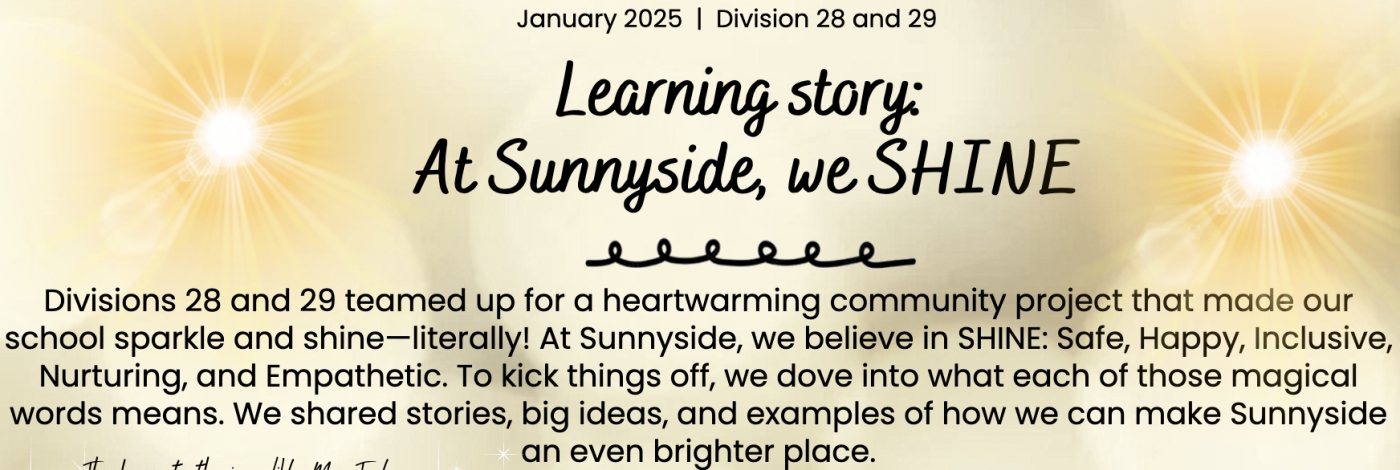
It is demonstrated through the data collection of our cohort that the focus on oral language strategies begins with sharing, brainstorming, explicit teacher modelling, and many opportunities to practice. There is evidence that this has made a difference in our student learning.
BC Kindergarten Curriculum
- Use language to identify, create, and share ideas, feelings, opinions, and preferences
- Create stories and other texts to deepen awareness of self, family, and community
- Plan and create stories and other texts for different purposes and audiences
- Explore oral storytelling processes
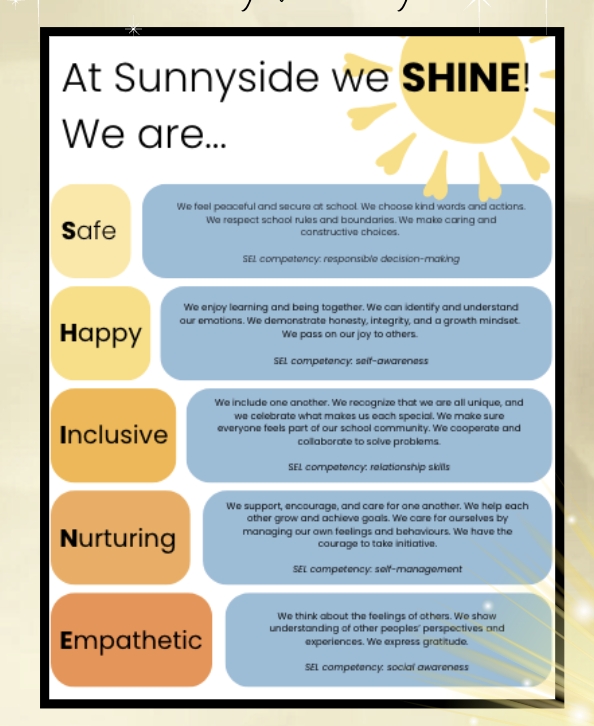
OUR FOCUS
Oral Language in the Early Years
At Sunnyside, oral language is a central focus of our student learning plan, as we recognize its vital role in communication, self-expression, and social connection. We value storytelling as a powerful tool for learning, and we intentionally embed First Peoples Principles of Learning into our daily routines to honour culture, build community, and deepen understanding. This approach aligns with the British Columbia curriculum, which emphasizes communication, personal and social awareness, and Indigenous perspectives as foundational elements of student growth. As a school committed to social-emotional learning (SEL), we strive to create secure and connected classroom environments where students feel safe, seen, and supported. This strong foundation empowers children to take learning risks, express their feelings, and manage their behaviour with care and confidence, contributing to a safe and joyful school community.
Oral language activities encourage children to share their experiences, engage in conversations, and participate in group discussions. This not only enhances their vocabulary and articulation but also fosters listening skills and collaboration. By nurturing these foundational skills, we empower children to communicate effectively, paving the way for their future learning and relationships!
Story Workshop
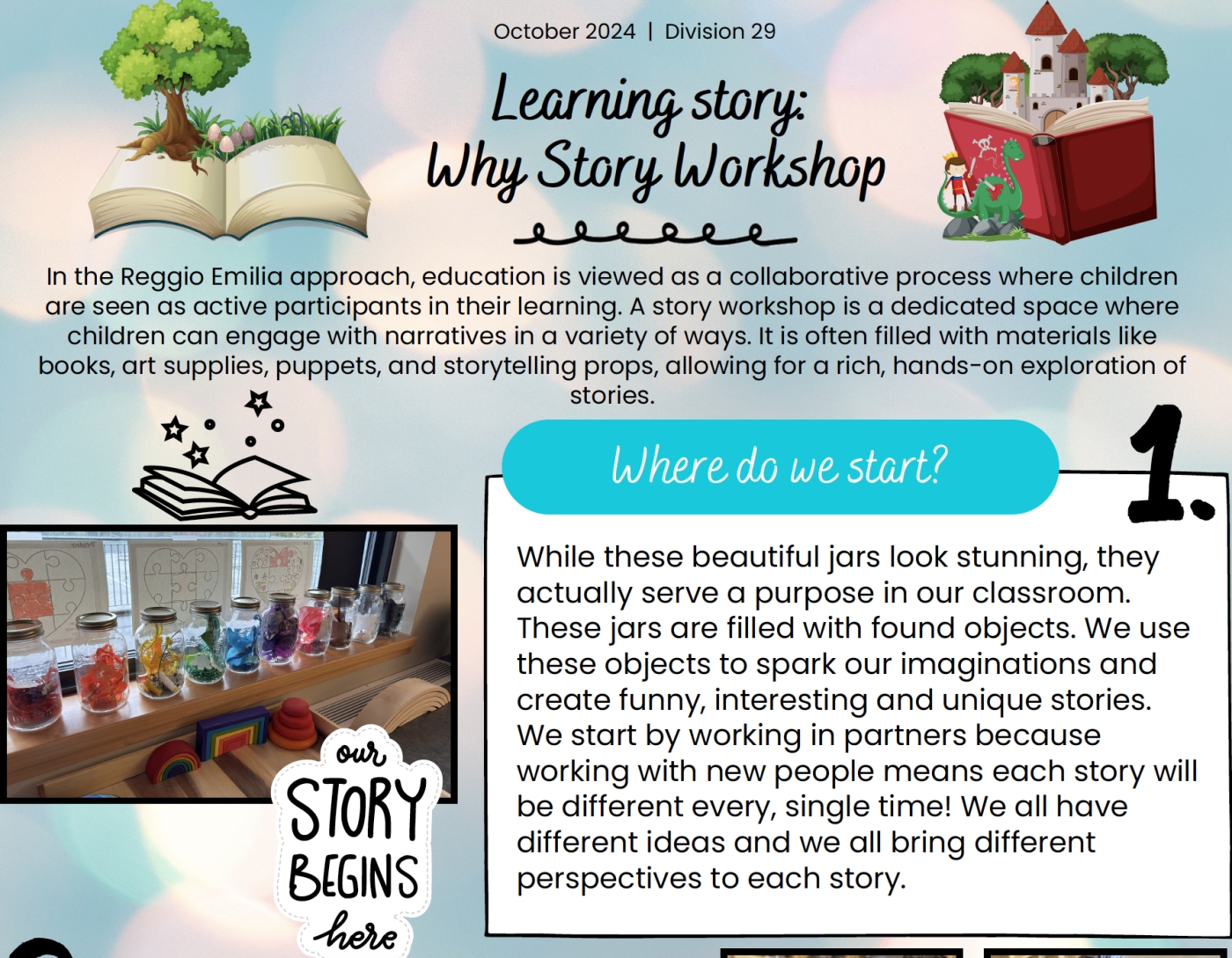
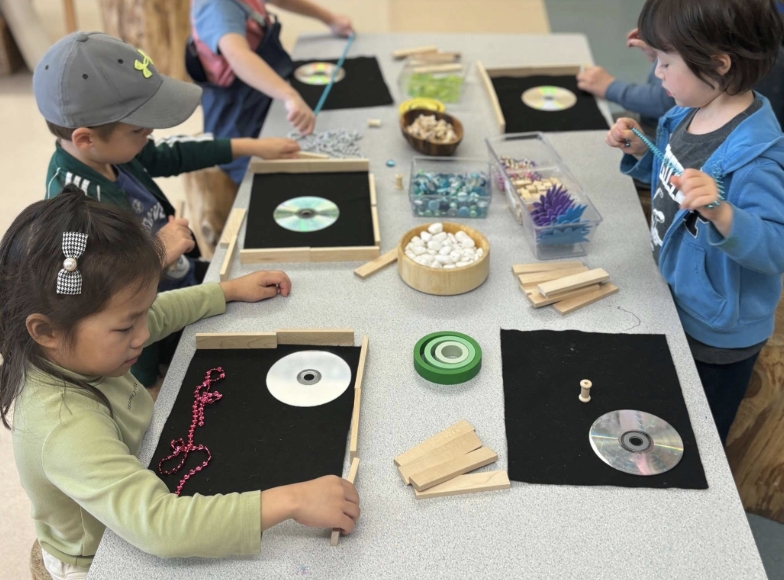
SEL and Oral Language Results
In Fall 2024, the majority of students (77%) were proficient in oral storytelling, with 10% developing, 5% emerging, and 8% exceeding expectations. By Spring 2025, proficiency increased to 86%, with a decrease in emerging learners to 0%, and a slight rise in those exceeding to 2%. This data indicates steady growth in students' oral communication skills and narrative structure development. Moving forward, the goal is to increase the percentage of students exceeding expectations by providing more opportunities for expressive language, audience engagement, and storytelling refinement. Our definitive literacy goal for next year is to strengthen students’ use of descriptive language and narrative sequencing to support clear, confident, and creative oral storytelling.
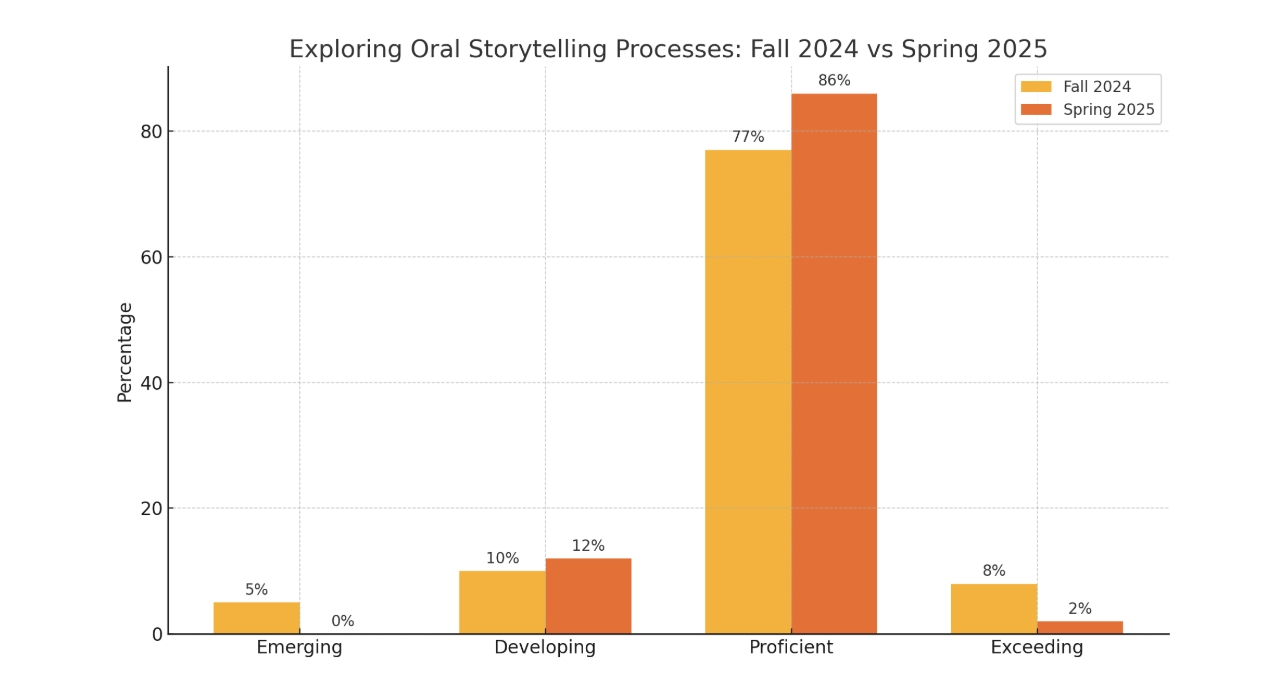
BC Curriculum Standards
- Language and story can be a source of creativity and joy
- Stories and other texts can be shared through stories and words
- Create and communicate
Sample Storyboards
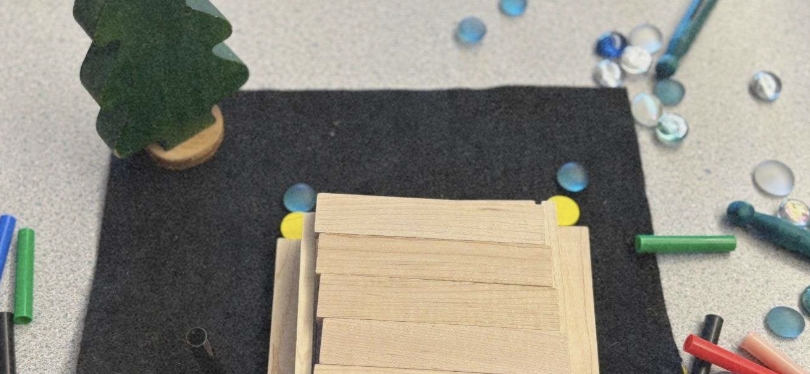
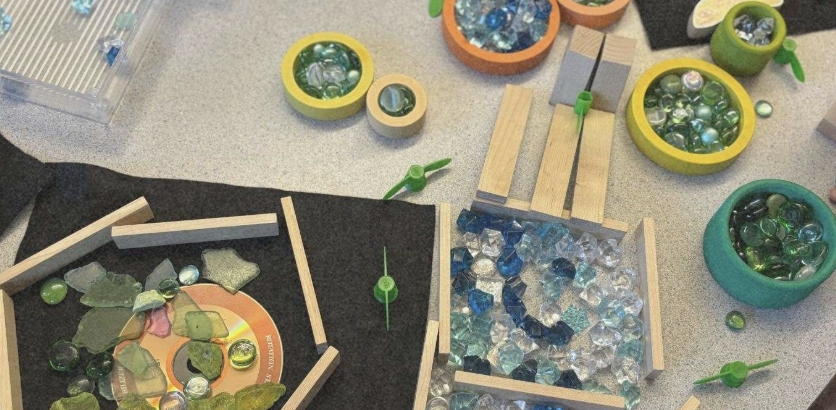
 https://sway.cloud.microsoft/oGrbG81ADvCjGmCs?ref=Link
https://sway.cloud.microsoft/oGrbG81ADvCjGmCs?ref=Link
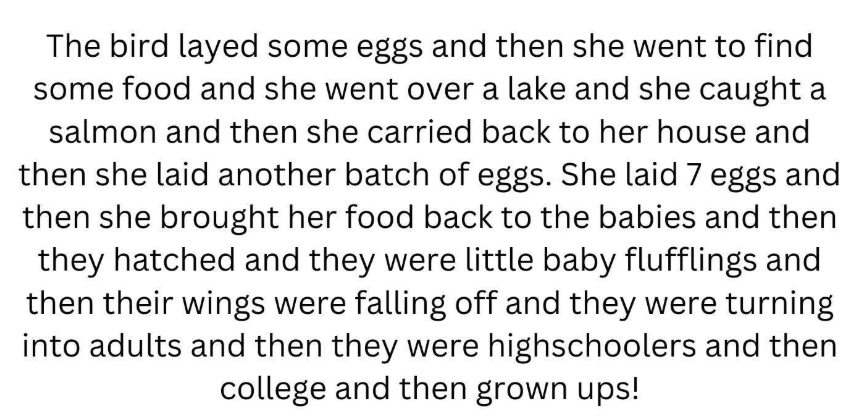
OUR NEXT STEPS
As we reflect on the progress made this year, it's clear that our intentional focus on oral storytelling and social-emotional learning has resulted in meaningful growth for our kindergarten learners. The increase in students achieving proficiency—and the elimination of those at the emerging level—demonstrates that our targeted practices are supporting language development effectively. Moving forward, our next steps will involve creating more opportunities for students to expand the complexity of their narratives by introducing rich vocabulary, sequencing tools, and expressive techniques. We will also continue to foster a safe, inclusive environment where students feel confident sharing their ideas and listening to others. Embedding oral storytelling within play, collaborative learning, and cross-curricular activities will help deepen engagement and reinforce SEL competencies such as empathy, turn-taking, and self-expression. Our ultimate goal is to increase the number of students exceeding expectations by the end of next year. To support this, we will offer intentional modeling, scaffolded storytelling experiences, and regular peer feedback opportunities. By strengthening both language and emotional connection, we aim to develop confident communicators and thoughtful listeners ready to thrive in their learning journey.
